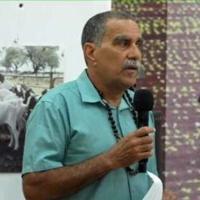By Anita Roberts
Copyright dailypost

Vanuatu is not producing enough livestock and agriculture products to sustain its population, making it heavily reliant on imports during disasters, said the Minister of Agriculture, Livestock, Forestry and Biosecurity (MALFB).
Minister Ian Wilson told farmers, stakeholders and policy makers at the National Commercial Commodity Forum that this limited production becomes evident during natural disasters, when rice and canned food are distributed.
“This shows that at the local level, we are not producing enough local crops, including small livestock such as pigs, goats, cattle, as well as fish, to meet feed our population. We always depend on imported food,” he stressed.
“Imports contribute to non-communicable diseases, and a recent survey revealed that 15% of the country’s population is disabled. Today, many resourceful people are dying without showing signs of illness. These are challenges faced by our young nation, which is why the government is developing polices are to address them.
“At the level of MALFB, our biggest challenge is to increase production across all sectors, including forestry. Today, the New Zealand vine has overtaken our local market. If we continue on this path, we will kill our future. We need to take a new direction.”
According to the Director General (DG) of the ministry, Timothy Tumukon, their main goal is to develop the productive sectors to increase production and meet both local and international demands.
The forums align with the ministry’s ‘Island Focus’ approach for the next years, where efforts to boost the production of these commodities will be concentrated on specific islands, rather than across the whole country as in previous years, he explained.
This shift aims to move farmers from a semi-commercial model, where they sell and consume part of their produce, to a more formal business model approach. Efforts are being concentrated in Santo aligned with the government’s vision of making Santo the country’s economic hub
Minister Wilson said the National Commercial Commodity Forum is crucial for engaging the private sector in aligning government policies with the National Sustainable Development Plan (NSDP), as well as reviewing and adjusting sectoral plans to meet the needs for the next five years, 2026 to 2030.
“Decisions from this forum will be captured as policies and strategies for moving forward, which I will present to the Council of Ministers and discuss with donor partners next year.
“…This will allow donors to direct their funds into clear pathways, he said.
The forum commenced yesterday in Luganville focussing on small livestock and will continue today, followed by cattle on Friday. The kava forum will take place from October 7 to 8, followed by cacao the next two days, root crops on October 13 in Port Vila including forestry on October 14.



